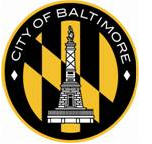Update Regarding Ongoing Code Blue Alert
Thursday Feb 19th, 2015

FOR IMMEDIATE RELEASE
Mayor Rawlings-Blake, Health Commissioner Issue Update Regarding Ongoing Code Blue Alert
Code Blue extended to Sunday at 10:00 am, City mobilizes agencies and private partners to protect residents during extreme cold temperatures
BALTIMORE, Md. (February 19, 2015)—With temperatures expected to fall below zero tonight and wind chills descending into the negative teens for the next two nights, Mayor Stephanie Rawlings-Blake is urging all city residents to take precautions to avoid serious health and safety consequences through the weekend.
“Throughout tonight and into the weekend, we will continue to mobilize City resources to offer emergency assistance to our homeless, our seniors, our sick, and those who are unable to properly heat their homes or who need temporary shelter,” said Mayor Rawlings-Blake. “I encourage residents who do not have sufficient heating to contact 311 for assistance. If you know someone in need of help, please don’t be silent—let’s all lend a helping hand to our neighbors in need."
During a Code Blue, public and private shelters operate with extended services, and extra assistance is available for those with no heat or electricity. The Mayor’s Office of Human Services will operate a 24-hour Housing & Resource Center for men and women at 620 Fallsway with 60 additional spaces available for those seeking meals and sleeping quarters. In addition, all thirteen of Baltimore City's senior centers will have free emergency meals available for clients.
Residents are urged to call 311—which will operate around the clock—to report non-life threatening situations, such as people in need of shelter, exposed pets or animals, and water outages. Residents should call 911 for any serious emergency.
“We are in the middle of record-setting dangerous cold,” said Baltimore City Health Commissioner Leana Wen, M.D. “We all have to take this very seriously. Extreme cold is even more dangerous than extreme heat.”
Alcohol use has been a contributing factor in at least three of the city’s six cold-weather deaths this year, and Dr. Wen reminds residents that alcohol and cold temperatures do not mix. “Alcohol blunts a person’s natural response to hypothermia, preventing the mind from recognizing that they are too cold and one’s body from naturally shivering to keep warm.”
The City will operate an overflow homeless shelter at the War Memorial building on Thursday night, Friday night, and on Saturday. Additionally outreach vans will canvass the city in an effort to encourage homeless individuals to take shelter; outreach vans will also provide transportation to the shelters.
Residents are reminded to stay indoors and warm if possible. Individuals who must spend time outside are encouraged to dress warmly to prevent hypothermia or frostbite. The following suggestions will help you dress for the weather:
- Cover your head.
- Wear several layers of lightweight, loose-fitting clothing.
- Cover your mouth with a scarf.
- Wear mittens, rather than gloves.
- Wear warm leg coverings and heavy socks (or two pairs of socks).
- Wear waterproof boots or sturdy shoes.
Other health hazards in cold temperatures include carbon monoxide poisoning and injuries from heat sources. Improper use of heating sources, such as burning fuel indoors or using a gas range for heat, can cause injuries or even death. Additionally, individuals should drink plenty of fluids, and avoid alcoholic beverages during extremely cold weather.
When temperatures plunge, water pipes can be damaged as water freezes. Residents are urged to prepare for possible water outages and protect their pipes by taking the following steps:
- Always keep a three-day supply of bottled water on-hand. Provide one gallon per person per day.
- Let a thin stream of cold water run from a basement faucet. The stream should be a continuous flow, about the thickness of a pencil lead. This water can be caught in a bucket and used later as laundry or dish water.
- If a pipe becomes frozen, gently warm it with hot air from a blow dryer at the point where it enters your house.
- Be sure you know the location of the water shutoff valve in your home. Check it periodically to ensure it is in working order.
- Shut off water to outside faucets.
- Periodically monitor your sump pump. A frozen drain pipe could result in a flooded basement.
- Insulate pipes in unheated parts of your house. Be especially alert if you have had frozen pipes in the past.
Cold weather also poses a severe health risk to pets. Take the following precautions to protect pets:
- Keep dogs and cats indoors, or limit their time outdoors.
- Never let your dog off-leash on snow or ice.
- Wipe off your dog’s legs and stomach when returning inside from outdoors.
- Never leave your pet alone in a car.
- Make sure your pet has a warm place to sleep.
The Baltimore City Health Department's Code Blue website has additional resources about cold weather safety. For more information, visit health.baltimorecity.gov.